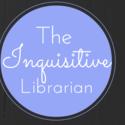-
About
- About Listly
- Community & Support
- Howto
- Chrome Extension
- Bookmarklet
- WordPress Plugin
- Listly Premium
- Privacy
- Terms
- DMCA Copyright
- © 2010-2025 Boomy Labs
 Kim Yoder-Mcdonald
Kim Yoder-Mcdonald
Listly by Kim Yoder-Mcdonald
Route 4 guides you through important ethical issues concerning the use of information owned and created by others. Included on this page are collections of resources designed to help you work through this stage. Feel free to download and print them off! Start at the top and work down the four InfoPaths that make up Route 4...
Copyright law says that copyright holders ONLY may do the following things with their created work: reproduce the work prepare derivative works based upon the work distribute copies of the work to the public by sale or other transfer of ownership, or by rental, lease, or lending perform the work
The information literate student understands many of the economic, legal, and social issues surrounding the use of information and accesses and uses information ethically and legally. 1. The information literate student understands many of the ethical, legal and socio-economic issues surrounding information and information technology A.
Want to let people share and use your photographs, but not allow companies to sell them? Looking for access to course materials from the world's top universities? Want to encourage readers to re-publish your blog posts, as long as they give you credit? Looking for songs that you can use and remix, royalty-free?

The Cybercitizen Awareness Program educates children and young adults on the danger and consequences of cyber crime.

Relatively new terms, "cybercitizenship", "cyber ethics", and "netiquette" refer to responsible cyber social behavior. These terms refer to what people do online when no one else is looking. As our kids go online in increasing numbers, cyber ethics is a critical lesson, especially since poor e-habits can start at an early age.

Nine Themes of Digital Citizenship Digital citizenship can be defined as the norms of appropriate, responsible behavior with regard to technology use. 1. Digital Access: full electronic participation in society. Technology users need to be aware that not everyone has the same opportunities when it comes to technology.

The more our students are online, the more information they will encounter. It is important for them not only be able to access this information, but also to be the best digital citizens that they can be. Here are some ideas. I am sure there are lots and lots more.

Grade 2 ethics-- Created using PowToon -- Free sign up at http://www.powtoon.com/ . Make your own animated videos and animated presentations for free. PowToon is a free tool that allows you to develop cool animated clips and animated presentations for your website, office meeting, sales pitch, nonprofit fundraiser, product launch, video resume, or anything else you could use an animated explainer video.

This is a short movie produced for everybody in the world to learn about the 9 elements of digital citizenship.

During Waverly-Shell Rock's Digital Citizenship campaign, students learned proper internet etiquette, the dos and don'ts associated with keeping safe online, and ways to protect your digital footprint. Watch as W-SR high school students, Maddie and Emma, sing their way to keeping safe online. To learn more about our Digital Citizenship Campaign, go to:http://www.wsrtech.com/blog.html .

http://www.hrmvideo.com Cyber ethics and respect for others online are critical skills to acquire for today's connected teens. The message of this teen-centered video is that all students have a responsibility to behave ethically online and to know how to react when others behave in inappropriate ways.

What is digital ethics?-- Created using PowToon -- Free sign up at http://www.powtoon.com/ . Make your own animated videos and animated presentations for free. PowToon is a free tool that allows you to develop cool animated clips and animated presentations for your website, office meeting, sales pitch, nonprofit fundraiser, product launch, video resume, or anything else you could use an animated explainer video.
Resources for Elementary Students and Teachers about Copyright Laws
